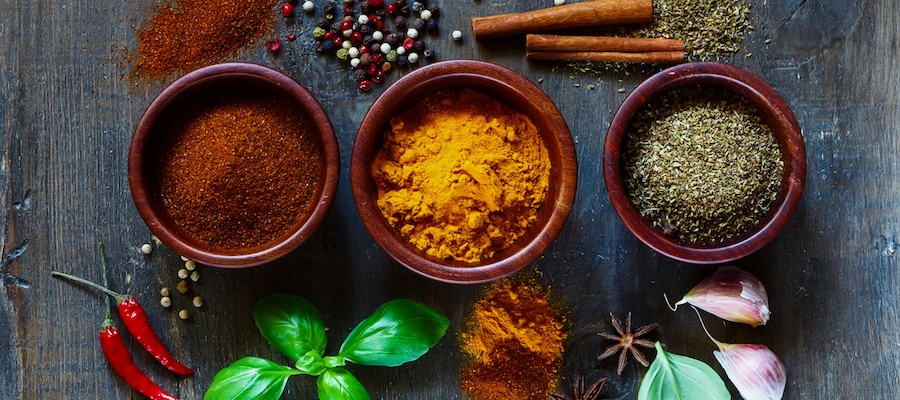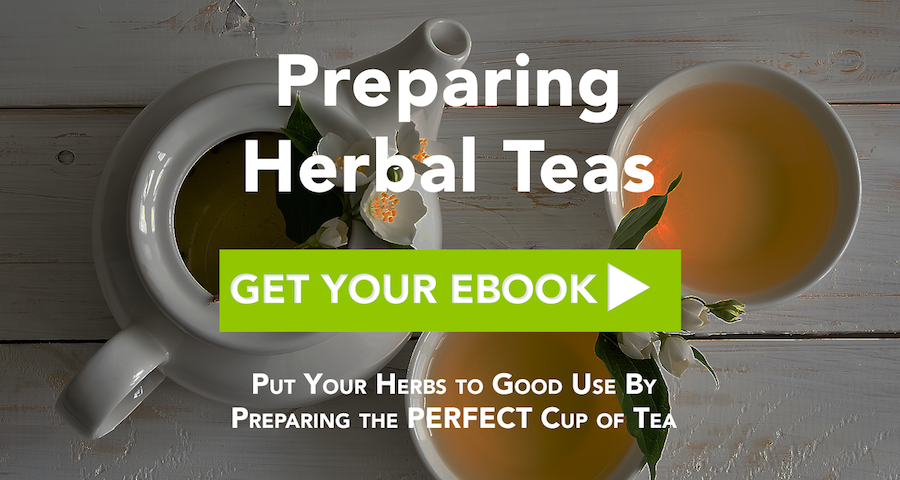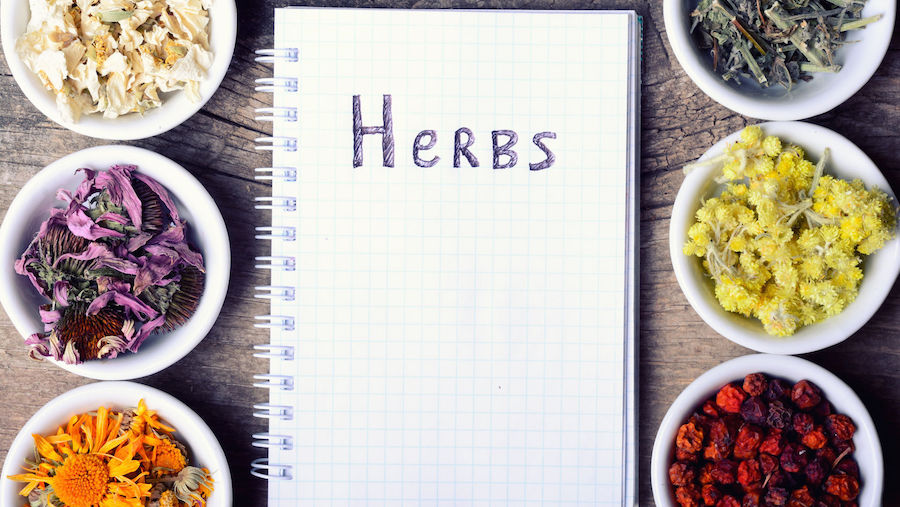Image Copyright: Yuliya Gontar / 123RF Stock Photo
I love a salty snack. And if it’s cheesy and crunchy… I love it even more!
I know salt does not love me back. Most of us are aware of the warnings of too much salt. But is it all that bad? YES! Salt…
- Can harden the arteries, which is a major cause of high blood pressure and can lead to heart attack, stroke, and cardiovascular disease.
- Stiffens the body, resulting in hardened joints (ouch!).
- Causes the body to retain fluid which, if excessive, can cause heart and kidney problems.
So what's the solution? Substitute with herbs! “More Herbs, Less Salt Day” is tomorrow, August 29! So, to celebrate this delicious day, join me in replacing salt with herbs in your diet.
The thing is, there’s no substitute for the taste of salt. So, to imitate the bite of salt, one needs to use herbs that are bright and flavorful.
There are herbs that “play well” with certain foods. Here are a few of my favorite herbal pairings:
- Rosemary Rosmarinus officinalis (L.) with potatoes and red meat
- Sage Salvia officinalis (L.) with chicken and pork
- Basil Ocimum basilicum (L.) with tomato sauces
- Dill Anethum graveolens (L.) with salmon
- Thyme Thymus vulgaris (L.) with just about everything!
- Oregano Origanum vulgare (L.) with traditional Greek and Mexican dishes
Top Tips for Cooking with More Herbs & Less Salt
Eggs & Dill
One food I always think needs salt is eggs—scrambled, over easy, hard-boiled. But you can simply swap with dill or sage.
When it comes to more herbs and less salt, you’ll need to think outside your herbal box and experiment. Choose an herb for a day or two and try it with everything. Notice when your taste buds light up. Fresh dill in scrambled eggs is delicious!
Cinnamon & Spaghetti Sauce
Basil and tomatoes are a natural paring––especially fresh basil. But it’s not the only herb that goes well with tomatoes! Try cinnamon Cinnamomum zeylanicum (Blume) in your chili or spaghetti sauce. Use just enough so you can’t really tell what it is, but you know you’re tasting something different and delicious. “Out of the box” herbs in your favorite dishes will challenge your taste buds and help you forget about salt.
Rice & Bay
I eat a lot of rice, and I usually douse it with soy sauce. But hey, soy sauce has a lot of salt! So I often cook my rice with a little salt-free chicken broth and a bay leaf Laurus nobilis (L.). That adds interesting flavors and can replace the umami that soy sauce or tamari brings to any dish. Umami is one of the five flavors including sweet, salt, sour, and bitter.
Potatoes & Rosemary
I also love potatoes. I love them tossed in herbs, a little olive oil, and balsamic vinegar before I roast them in the oven. There is no denying rosemary and spuds are a natural pairing. And a slight drizzle of balsamic vinegar adds a little sweet and sour to the savory and aromatic delights of rosemary. No salt needed.
Black & White Pepper
Finally, consider switching your “salt and pepper” routine to a solo act. Shine the spotlight on pepper Piper nigrum (L.), which can replace the bite of salt. I like a combination of black and white pepper. Grind just enough to get a little pepper flavor without too much heat.
When you play around with more herbs and less salt, you may find you no longer crave the flavor of salt. So experiment! Pick an herb you rarely or never use and try it with a few things. Who’s up for trying tarragon? Let me know in the comments!
Disclosure of Material Connection: I am the Herbal Medicine Department Chair at American College of Healthcare Sciences, the Institution that publishes this blog. However, all opinions are my own. This blog may contain affiliate links. I am disclosing this in accordance with the Federal Trade Commission’s 16 CFR, Part 255: “Guides Concerning the Use of Endorsements and Testimonials in Advertising.”
This article is for informational purposes only. It is not intended to treat, diagnose, cure, or prevent disease. This article has not been reviewed by the FDA. Always consult with your primary care physician or naturopathic doctor before making any significant changes to your health and wellness routine.





